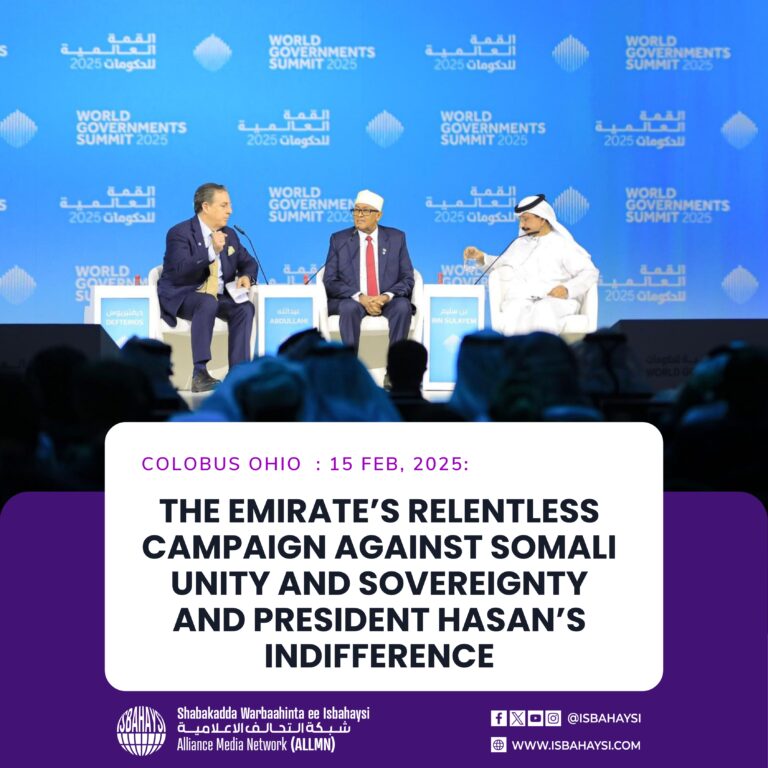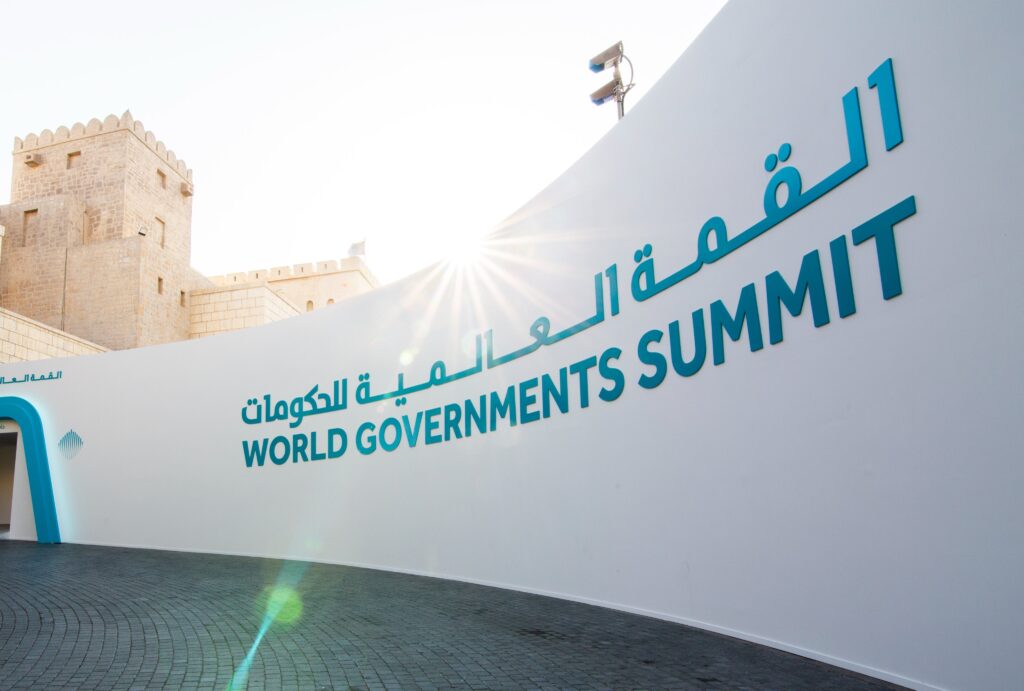
Somalia has been facing mounting external interferences that threaten its national unity and sovereignty in recent times. However, among the most persistent, multifaceted and damaging foreign interventions has been the Emirate’s aggressive and systematic interference in Somalia’s internal affairs. This intervention, which often masked as economic cooperation and security collaboration has largely served to deepen divisions within Somali society, exacerbate political tensions and undermining the fragile peace-building efforts within the country. Yet, amid this blatant encroachment on Somalia’s unity and sovereignty, President Hasan Sh. Mohamud – the custodian of constitution – remains conspicuously indifferent, raising serious questions about his commitment to protecting the nation’s unity, sovereignty and the well-being of its people.
The United Arab Emirates (UAE) has long pursued an assertive foreign policy in the Horn of Africa, leveraging its economic and political influence to advance its strategic interests. Somalia has been and remains to be, one of its primary targets in the Horn of Africa region, where the Emirate’s involvement has been far from constructive – Instead of fostering stability and unity, UAE-backed policies and actions have often led to fragmentation and heightened internal discord.
The United Arab Emirates (UAE) has particularly demonstrated its blatant disregard for Somalia’s unity and sovereignty by inviting the regional leader of Somaliland region of Somalia, Mr Abdirahman Irro to the high-level meeting in Dubai THE WORLD GOVERNMENTS SUMMIT instead of inviting with the President of the Federal Government of Somalia. This move severely undermines Somalia’s unity, sovereignty and territorial integrity and emboldens separatist ambitions, directly violating international norms and diplomatic protocols. Such actions contradict the principles of non-interference and sovereignty enshrined in the UN Charter, and they highlight the UAE’s ongoing efforts to advance its geopolitical interests in the Horn of Africa at the expense of Somalia’s national unity and sovereignty.

One of the most alarming aspects of the Emirate’s interference is its preferential engagement with Somali regional states, particularly those that have historically been at odds with the central government. By striking independent deals with regional administrations – often without the consent of the federal government – the UAE has actively weakened Somalia’s national cohesion. This divisive approach fuels tensions between Mogadishu and the federal member states, complicating the already fragile state-building process and prolonging instability.
Moreover, the Emirate has been accused of supporting political factions and influential individuals who align with its interests, rather than promoting an inclusive and unified Somalia. This approach has not only disrupted Somalia’s internal political processes but has also widened the rift between different Somali communities. By exploiting existing divisions, the UAE’s actions have directly/indirectly empowered extremist and terrorist groups that always thrive in fractured societies. These groups, capitalising on the instability, have further destabilised not only Somalia but the entire Horn of Africa region and beyond.
Despite the clear and present danger posed by the Emirate’s meddling however, the President of Somalia Hasan Sh. Mohamud has remained strikingly indifferent and passive. His failure to publicly denounce the UAE’s actions or take decisive diplomatic measures reflects a worrying lack of urgency in addressing these national threats. This silence could be interpreted in several ways: an unwillingness to confront UAE for personal reasons; tacit approval of the Emirate’s divisive tactics; an underestimation of the long-term damage being done or worse, combination of all.
The absence of strong leadership in countering foreign interference not only emboldens external actors but has eroded the confidence of the Somali people in their government. A leader’s primary responsibility is to safeguard national unity and sovereignty, defend the interests of the people and ensure that no foreign power dictates the internal affairs of the country. Yet, in the case of current government of Somalia under the leadership of President Dr. Hasan Sh. Mohamud, his indifference and passive stance has allowed the UAE’s campaign against Somali’s unity to continue unchecked. At the heart of this crisis lies the Somali people, who bear the brunt of these political manoeuvres. The UAE’s continued interference, coupled with the Hasan Sh. Mohamud’s failure to push back, leads prolonged instability, economic stagnation, and worsening humanitarian conditions in the country.
With a divided leadership, mainly as a result of UAE blatant interference, Somalia remains vulnerable to further exploitation, delaying efforts to rebuild the nation and achieve sustainable peace. In addition, by sowing division within Somali leadership and communities, UAE’s policies towards Somalia have directly/indirectly strengthened terrorist groups such as Al-Shabaab and ISIS, which exploit governmental weaknesses, communal strife and political instability. This however not only endangers Somalia but also threatens the security of neighbouring countries and beyond – If UAE policies are left unchecked, terrorist networks will undoubtedly be able to expand their operations throughout the Horn of Africa region, leading escalating violence, displacement crises and economic deterioration.
Finally, it is imperative that Dr. Hasan Sh. Mohamud’s leadership has, so far, failed to take a firm stand against foreign interference, particularly the UAE. Nevertheless, there is still room for the President to break his silence and assert Somalia’s unity and sovereignty unequivocally. This means publicly condemning divisive foreign policies of UAE, strengthening diplomatic alliances that respect Somalia’s territorial integrity and fostering internal political cohesion to resist external manipulation. If, however, the President continue his indifference and inaction stances, the Somali people are left no option but to take the matter into their own hands to defend their unity and sovereignty because the longer the indifference and the silence continues, the greater the risk of Somalia’s disintegration at the hands of external actor and self-centred leadership.
_________________
Author: Aisha Abdow, A Writer and Horn of Africa Political Analyst. Colobus Ohio, USA.